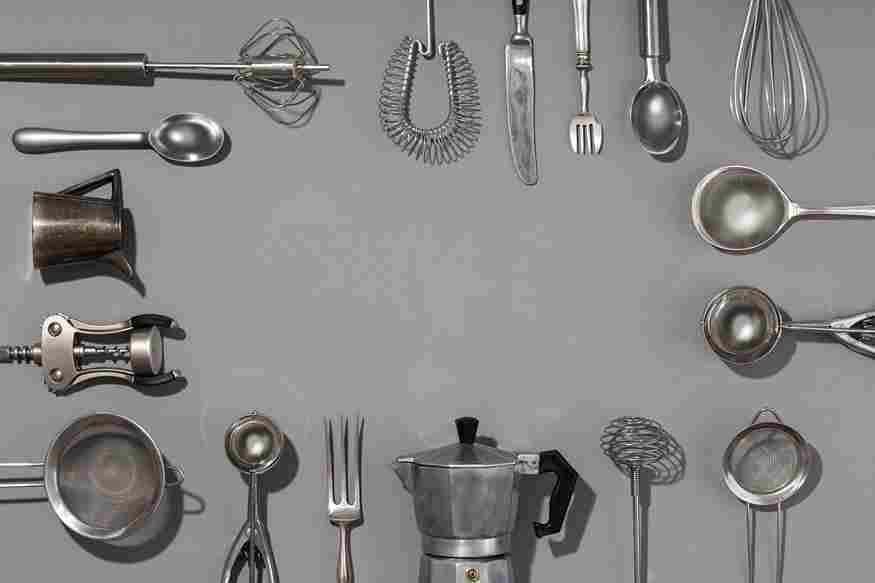
In any modern commercial or home kitchen, the choice of tools impacts not only the cooking process but also food safety and durability. Stainless steel kitchen tools have become the preferred option for chefs and restaurant owners worldwide—and for good reason. Compared to plastic or wooden utensils, stainless steel offers superior performance, hygiene, and longevity. This article explores why switching to stainless steel is a smart investment for both professional and home cooks.
1. Durability That Outlasts the Competition
One of the biggest advantages of stainless steel kitchen utensils is their unmatched durability. Unlike plastic or wooden alternatives that may crack, warp, or absorb odors over time, stainless steel is resistant to wear and tear.
Heat Resistance: Stainless steel tools can withstand extremely high temperatures without melting or releasing harmful chemicals, which is essential for cooking in busy commercial kitchens.
No Warping: Wooden spoons may bend or splinter with prolonged exposure to heat and moisture, while stainless steel remains stable and retains its shape for years.
Corrosion Resistance: High-quality stainless steel is naturally resistant to rust, making it ideal for environments where frequent washing is required.
For restaurants and hotels, investing in durable utensils reduces replacement costs and ensures consistent performance in high-volume operations.
2. Superior Hygiene and Food Safety
Food safety is non-negotiable in any kitchen. Wooden utensils often absorb moisture and oils, creating an environment where bacteria can thrive. Similarly, plastic tools can develop scratches over time, trapping food particles and harboring germs.
Stainless steel kitchen tools offer a hygienic alternative:
Non-Porous Surface: Stainless steel does not absorb liquids or odors, reducing the risk of bacterial growth.
Easy to Clean: They can be thoroughly sanitized using dishwashers or industrial cleaning methods without losing integrity.
Compliance with Health Standards: Many commercial kitchens prefer stainless steel because it aligns with food safety regulations and professional hygiene standards.
For restaurant professionals, maintaining a clean and safe kitchen environment builds trust with customers and avoids compliance issues.
3. Professional Aesthetic and Versatility
First impressions matter in a restaurant or catering setup. Stainless steel utensils not only perform well but also look professional. Their sleek, polished appearance complements modern kitchen designs and communicates a sense of quality.
Additionally, stainless steel is highly versatile:
Works with all types of cookware, including non-stick (when designed with silicone tips).
Suitable for various kitchen tasks—mixing, flipping, whisking, and serving.
Compatible with both traditional and induction cooktops.
A well-equipped kitchen stocked with stainless steel kitchen tools creates an efficient and visually appealing workspace for chefs and staff.
4. Eco-Friendly and Cost-Effective
With the increasing awareness of sustainability, stainless steel is the eco-friendly choice over plastic utensils.
Reusable and Recyclable: Unlike single-use plastic tools, stainless steel utensils can be recycled without degrading quality.
Long-Term Savings: While the initial cost may be higher than plastic or wooden utensils, their durability reduces long-term replacement expenses.
Reduced Environmental Impact: Fewer replacements mean less waste, contributing to greener kitchen practices.
Restaurants aiming for sustainability certifications or eco-conscious branding benefit greatly from adopting stainless steel solutions.
5. Performance and Cooking Efficiency
Professional chefs know that precision and control are key in the kitchen. Stainless steel utensils provide excellent performance that other materials struggle to match.
Balanced Weight: Offers better control compared to lightweight plastic tools.
Heat Conductivity: Many stainless steel utensils, such as ladles and spatulas, stay cool at the handle while withstanding high heat at the working end.
Consistency: They maintain their performance even after years of heavy use, unlike wooden or plastic tools that degrade over time.
The right utensils can directly improve cooking efficiency and help maintain consistency in every dish served.
Conclusion: Upgrade Your Kitchen with Stainless Steel
When you compare stainless steel with plastic or wooden utensils, the advantages are clear: durability, hygiene, professional appearance, and sustainability. Whether you run a small café or a large restaurant, investing in stainless steel kitchen tools ensures long-term benefits for both performance and safety.
If you’re looking to elevate your kitchen operations, now is the time to switch. Explore our premium range of restaurant kitchen equipment and stainless steel utensils designed for professionals who demand the best. Upgrade your tools today and experience the difference quality makes.
Write a comment ...